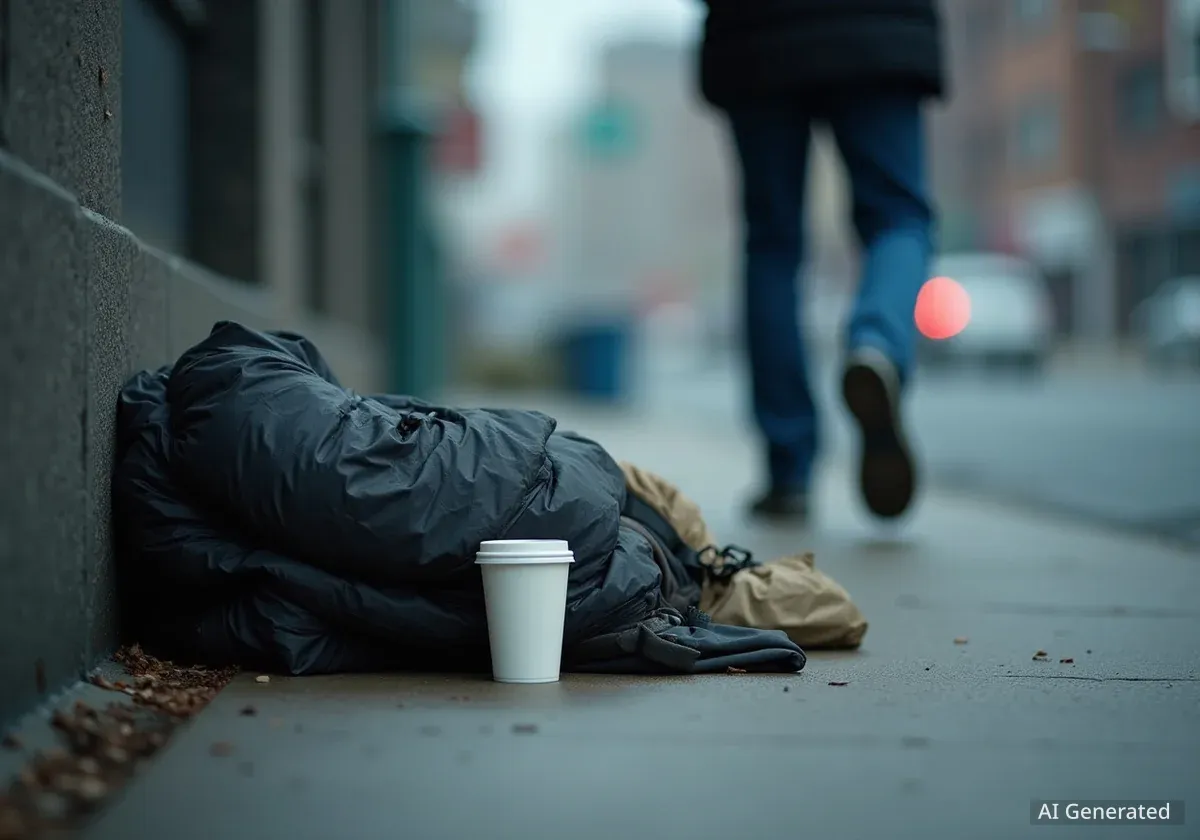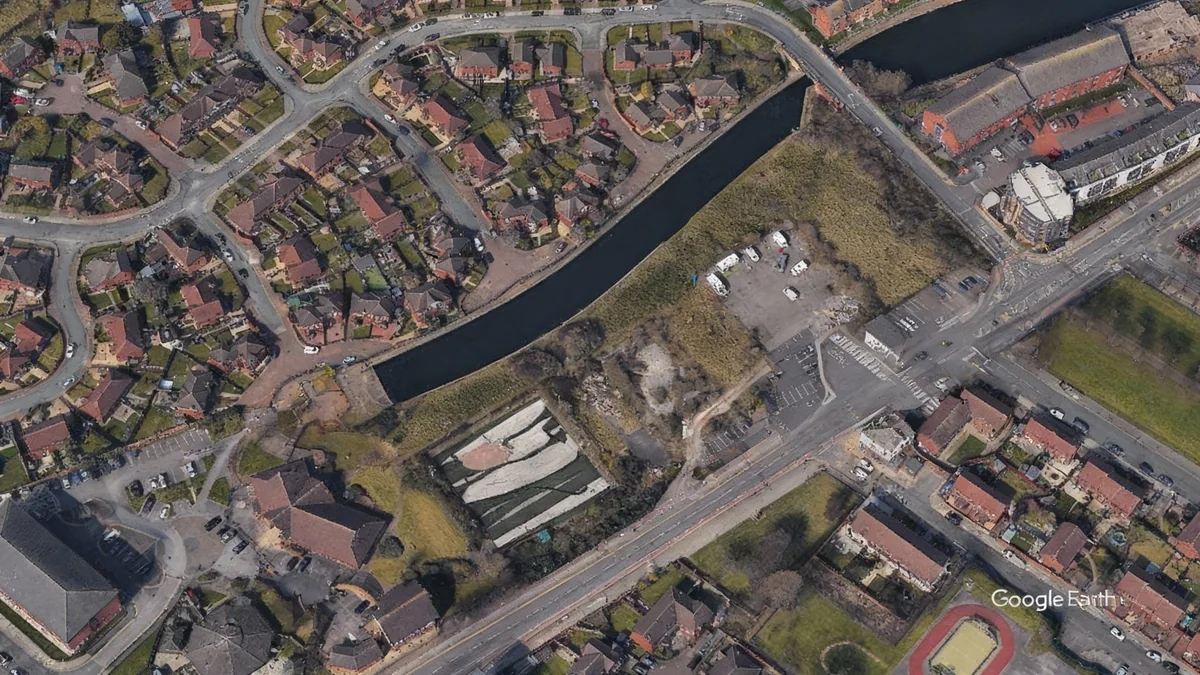Liverpool City Council plans to inject over £750,000 into initiatives aimed at supporting individuals facing rough sleeping and those requiring drug and alcohol treatment. This significant financial commitment, part of a wider £8 million fund, is expected to be approved by the city's cabinet. The funding will enhance existing services provided by the Whitechapel Centre, focusing on vulnerable residents as winter approaches.
Key Takeaways
- Liverpool City Council is allocating over £750,000 to tackle rough sleeping and addiction.
- The Whitechapel Centre will manage the services until March 2026.
- Funding supports drug and alcohol treatment for rough sleepers and those at risk of homelessness.
- The 'Pathways' model provides intensive, multi-faceted support.
- A pilot Recovery Support Service (RSS) helps individuals facing housing insecurity due to addiction.
Enhanced Services for Vulnerable Residents
The proposed funding will be directed towards two critical services delivered by the Whitechapel Centre. These services aim to provide a comprehensive support system for individuals experiencing homelessness or at risk of it, particularly those with complex needs related to drug and alcohol use. The council's cabinet is expected to formalize the grant award during its upcoming meeting at the Town Hall.
This investment reflects Liverpool's broader vision to establish a high-quality treatment and recovery service. This service will be supported by robust clinical leadership and trauma-informed practices, ensuring that care is sensitive to the past experiences of individuals.
Funding Details
- Total Allocation: Over £750,000
- Source: Part of a larger £8 million funding pot
- Recipient: The Whitechapel Centre
- Service Period: Expected to fund services until March 2026
The 'Pathways' Model: Bridging Service Gaps
A substantial portion of the funding will support the Rough Sleeping Drug and Alcohol Treatment (RSDAT) programme. This initiative began in 2020 with an initial grant to Liverpool Council. Its purpose was to create an innovative project that would assist rough sleepers and those placed in emergency accommodation during the Covid-19 pandemic. The goal was to help them access health, harm reduction, and substance misuse treatment.
The RSDAT funding allowed for the development of a model known as 'Pathways'. This model provides intensive, multi-faceted support to individuals who often struggle to access traditional services successfully. These individuals frequently fall through the gaps between different service providers.
"The 'Pathways' model offers intensive support in a multi-faceted way to people who can fall through 'gaps' between the remit of individual service providers, and who do not traditionally access services in a successful way," a council spokesperson stated.
The success of the 'Pathways' project is evident in its outcomes. As of March 31 this year, out of 65 active cases, only four people (6%) were still rough sleeping. This is a significant reduction from the 29% who were rough sleeping at the start of their engagement with the project.
Addressing the Risk of Homelessness Due to Addiction
The second key component of the funding and interventions focuses on individuals at risk of homelessness specifically because of their drug and alcohol use. Liverpool recognizes that people often face multiple, interconnected challenges that increase their likelihood of experiencing housing stress. This situation demands a coordinated approach to holistic support.
The Recovery Support Service (RSS) is a crucial part of this coordinated response. It began as a pilot program in October 2024. Its design is to support individuals battling addiction who are at risk of losing their homes. This risk extends beyond those who have already received eviction notices. It also includes individuals facing housing insecurity due to ongoing challenges linked to substance dependency.
Interconnected Challenges
Individuals experiencing homelessness or at risk of it often face a range of complex issues. These can include:
- Substance dependency
- Mental health conditions
- Lack of employment
- Limited access to healthcare
- Previous trauma
A coordinated, holistic approach is essential to address these multiple factors effectively and provide sustainable solutions.
Comprehensive Support for Lasting Change
The Recovery Support Service offers a wide array of practical and financial assistance. Its primary objective is to help people achieve positive, lasting changes in their lives. This includes support for housing stability, health improvements, and pathways to recovery from addiction.
The Whitechapel Centre plays a vital role in this effort. It works in partnership with various accommodation providers and other agencies. This collaborative approach helps to reduce the risk of repeated accommodation breakdowns, offering a more stable environment for individuals to recover and rebuild their lives.
As winter approaches, the increased funding becomes even more critical. Cold weather poses severe risks to rough sleepers. These services provide not just immediate shelter but also the long-term support needed to break the cycle of homelessness and addiction. The investment underscores the city's commitment to protecting its most vulnerable residents and fostering a more supportive community environment.
Whitechapel Centre's Role
The Whitechapel Centre is a leading homeless and housing charity in Liverpool. It provides:
- Emergency accommodation
- Daily support services
- Drug and alcohol treatment pathways
- Resettlement support
- Advice and advocacy
Their partnership with Liverpool City Council is key to delivering these vital services.
Looking Ahead: March 2026 and Beyond
The current funding is set to support Whitechapel Centre's services until March 2026. This timeframe allows for continued intervention and sustained support for many individuals. The council's decision to allocate such significant funds highlights the ongoing need for these services and the positive impact they have on the community.
The focus on trauma-informed practice ensures that individuals receive care that acknowledges their past experiences and promotes healing. This approach is crucial for building trust and enabling effective recovery. Liverpool's commitment to these programs aims to create a more resilient and compassionate city for all its residents.





